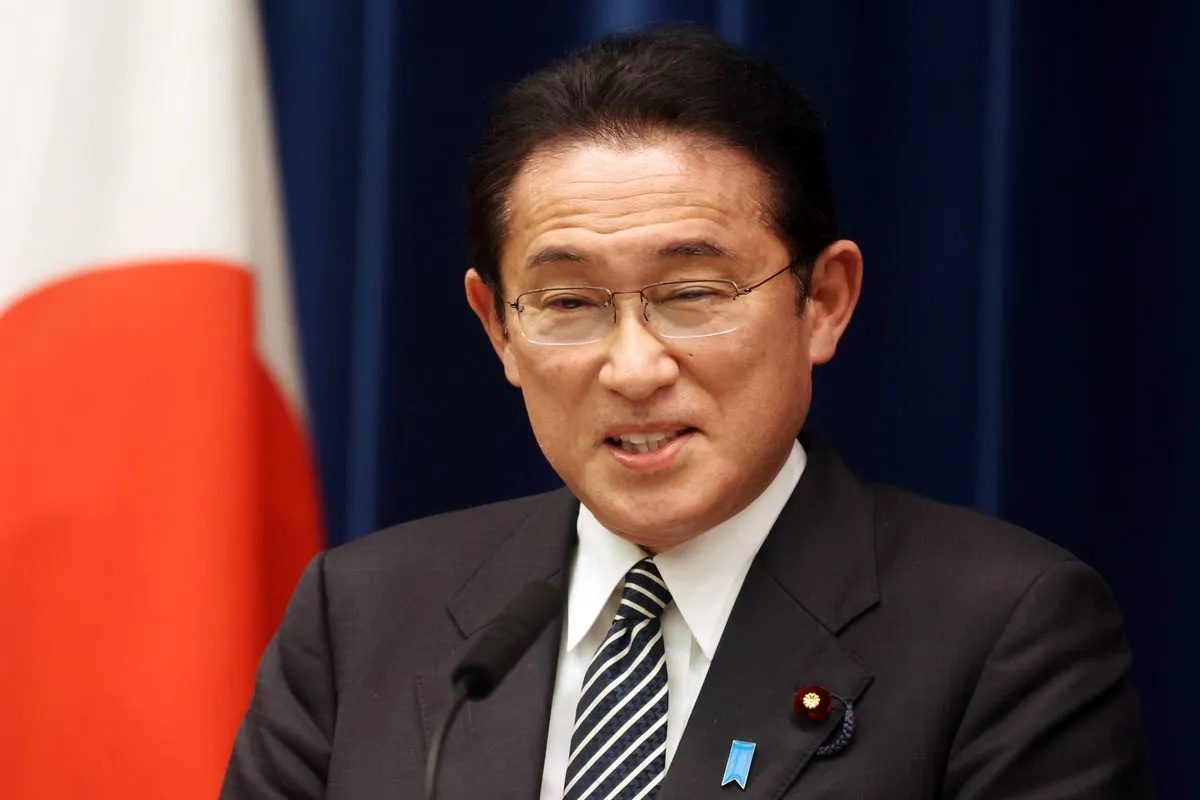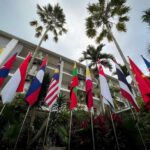Global Courant 2023-05-12 16:25:44
On March 20, 2023, Japanese Prime Minister Fumio Kishida chose to unveil his new plan for a “Free and Open Indo-Pacific” (FOIP) in India. Kishida’s decision symbolizes the continuity of Japanese policy and unwavering commitment to FOIP. Tokyo is not reformulating, but improving on its existing idea of former Prime Minister Shinzo Abe.
Abe first came up with his idea 15 years ago to visualize the merging of the Indian and Pacific Oceans to create a band of like-minded nations in India. This basic idea eventually led to the political construction of an “Indo-Pacific” concept and the realization of the FOIP.
It also aims to reassure a distrustful India that has repeatedly emphasized the need for “inclusiveness”, “freedom” and “openness”. Inclusivity means the inclusion of China. On this, Kishida made it clear in his speech: “We don’t exclude anyone, we don’t create camps and we don’t impose values.” The statement was not only aimed at New Delhi.
Despite closer Sino-Russian relations, Kishida chooses to keep doors open with Beijing by emphasizing “rule-making through dialogue.” He also makes it clear to Washington that Tokyo does not want the FOIP to become a containment policy against Beijing.
Some observers consider the new plan to be mere window dressing. But the plan goes beyond the initial idea of establishing connectivity between the two oceans and gathering countries to defend the existing international order.
The rule of law, freedom of the sea and democratic values were the main concerns. While these foundations remain the basis of Japan’s FOIP, the focus is now on securing vulnerable countries in the South, especially those affected by unilateral aggression and debt traps.
The 2022 Russian invasion of Ukraine significantly increased Japan’s security awareness, to the extent that it changed its approach to foreign policy. The invasion served as a starting point that gave new impetus to the leadership.
In his address at Johns Hopkins University in January 2023, Kishida expressed“If we leave this unilateral change of the status quo by force unchallenged, it will happen elsewhere in the world, including Asia. It is Japan that must rise to this challenge to take action to defend our freedom and democracy.”
A voter casts his vote for Japan’s Upper House election at a polling station in Tokyo, Japan, July 10, 2016. Photo: Agencies
The plan expands to address non-traditional security challenges “in a realistic and practical Indo-Pacific way”, including climate change, disinformation in cyberspace and public health – major concerns that resonate positively with the Global South. The plan identifies Southeast Asia, South Asia and the Pacific Islands as the top three regions.
By expanding the scope beyond territoriality and state security, Kishida makes FOIP more palatable to ASEAN nations. This is important when considering ASEAN’s decision to publish their own ASEAN prospects for the Indo-Pacific as a direct response to the FOIP for fear of being sidelined and entangled in major power rivalries.
Tokyo has helped the Pacific Islands tackle climate change and natural disasters even when Abe was prime minister. But the region is now seen as crucial because of how far Beijing has penetrated.
Mihai Sora wrote“China has been more successful than the United States in convincing Pacific leaders that its interests in the region are broader than shaping the Pacific’s military environment.”
This explains the greater focus on non-traditional issues evident in Kishida’s new plan, in line with the US-led Partners in the Blue Pacific initiative that coordinates development aid to the region, of which Japan is an integral part.
The plan envisions a critical role for human security to take shape by expanding FOIP to include bottom-up approaches.
Although the term “human security” is not explicitly mentioned, the phrase “survival, well-being and living with dignity of individual people” in the plan clearly falls within its scope and indicates Tokyo’s willingness to define FOIP beyond the narrow limits of traditional security. .
Kishida is able to revive the FOIP thanks to the foundation laid by Abe, who has worked tirelessly to gain the diplomatic support of the other Quad members, especially the United States.
The new plan is also reinstated Japan’s leading role in the face of China’s economic influence by emphasizing an “Indo-Pacific way” of cooperation. Providing a clear overview of what it entails is crucial to developing a sustainable political culture in which Japan can better exert its influence.
Japanese Prime Minister Fumio Kishida, US President Joe Biden and Indian Prime Minister Narendra Modi attend a photo shoot at the launch of the Indo-Pacific Economic Framework (IPEF) in Tokyo, Japan, on May 23, 2022. Photo: Pool
The strength of Kishida’s new plan will depend on two factors: the support of Quad members and the wider international community, and public support in domestic politics. The strong solidarity shown against China and Russia at the last meeting of G7 foreign ministers in Japan reinforces Tokyo’s perspective on foreign policy.
Domestically, Kishida may encounter resistance in financing the plan. He will need to bolster his cabinet approval rating, which currently hovers around 40%. While the next general election isn’t due until 2025, there are rumors that he will soon seek a new mandate given the favorable results of April’s local and by-elections.
The plan provides insight into how Kishida intends to lead the FOIP – expanding the vision to practical issues related to the developing world. The quest is ultimately to wrest control of the liberal international order in key regions where China has formidable strategic influence.
Benny Teh Cheng Guan is an Associate Professor at the School of Social Sciences, Universiti Sains Malaysia, Penang, and a Japan Foundation Fellow at the Graduate School of Arts and Sciences, The University of Tokyo, Japan.
This article was originally published by East Asia Forum and has been republished under a Creative Commons license.
Similar:
Loading…




